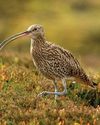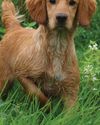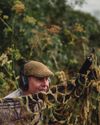
I have written at length about sea purslane twice before, on both occasions dismissively treating it as an ‘also-ran’ in the wild food stakes. But fashion and food science move on, so this time I will not be damning it with faint praise: sea purslane is rich in healthendowing nutrients and is useful in many dishes.
Sea purslane is a plant that lives just above the tidal zone in estuarine habitats, notably saltmarshes. Here, it can grow in vast, sinuous, grey-green carpets. It can and must tolerate levels of salt, since ‘just above the tidal zone’ is very salty, with exceptionally high tides and serious wave action.
The plant achieves the difficult trick of salt management using sugars and other biochemicals that act as osmolytes. These allow the plant to absorb water without also retaining too much of the salt. Still, a single bite of a leaf will reveal that it is still a very salty plant, though less so in the spring leaves.
Sea purslane grows in suitable habitats around Britain, with the notable exception of Scotland, where it is rare. It is a straggling shrub that is perennially in leaf, and rarely grows to more than a foot or so.
The leaves are noticeably succulent, a pale grey-green and oval with tapering towards the stem. The grey, dull appearance is due to a matt texture ornamented with thousands of tiny holes. This and the succulence are strategies for reducing the loss of hard-won water in a highly desiccating environment.
What’s in a name?
This story is from the April 26, 2023 edition of Shooting Times & Country.
Start your 7-day Magzter GOLD free trial to access thousands of curated premium stories, and 9,000+ magazines and newspapers.
Already a subscriber ? Sign In
This story is from the April 26, 2023 edition of Shooting Times & Country.
Start your 7-day Magzter GOLD free trial to access thousands of curated premium stories, and 9,000+ magazines and newspapers.
Already a subscriber? Sign In

United we stand
Following United Utilities' decision to end grouse shooting on its land, Lindsay Waddell asks what will happen if we ignore our vital moors

Serious matters
An old gamebook prompts a contemplation on punt-gunning

They're not always as easy as they seem
While coneys of the furry variety don't pose a problem for Blue Zulu, he's left frustrated once again by bolting bunnies of the clay sort

Debutant gundogs
There's lots to think about when it comes to making the decision about when to introduce your dog to shooting

When the going gets rough
Al Gabriel returns to the West London Shooting School to brush up on his rough shooting technique

The Field Guide To British Deer - BDS 60th Anniversary Edition
In this excerpt from the 60th anniversary edition of the BDS's Field Guide To British Deer, Charles Smith-Jones considers the noise they make

A step too far?
Simon Garnham wonders whether a new dog, a new gun and two different fields in need of protection might have been asking too much for one afternoon's work

Two bucks before breakfast
A journey from old South London to rural Hertfordshire to stalk muntjac suggests that the two aren't as far detached as they might seem

Stalking Diary
Stalkers can be a sentimental bunch, and they often carry a huge attachment to their hill

Gamekeeper
Alan Edwards believes unique, private experiences can help keepers become more competent and passionate custodians of the countryside